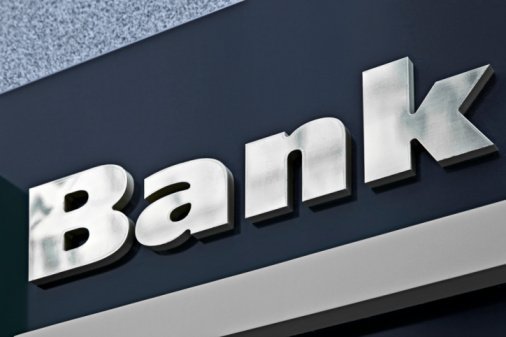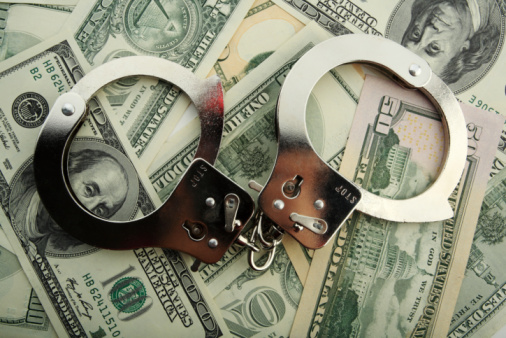France’s Attack on the Dollar
There is an attack on the dollar from all sides that will have a major impact on your retirement and savings. This is the first of a two part series on the attack on the dollar by friends and old foes alike. This time, it’s France coming after our currency.
Here’s the setup: The United States now claims authority to regulate ANY transaction denominated in dollars. Basically, any time the dollar is involved in a deal, the U.S. feels it has the duty to control the terms… might makes right seems to be the prevailing sentiment.
To many of you, this might sound ridiculous. The U.S. wants to regulate a transaction having nothing to do with a U.S. business interest or one not tied to America in any way, simply because the contract lists the terms in dollars?
That’s exactly what happened in the case of the French bank BNP Paribas. This company entered in to transactions with countries that the U.S. government didn’t like, including Sudan. They made the mistake of setting the terms of these transactions in dollars, which let mighty Uncle Sam step in and fine the bank nearly $9 billion dollars (yes, that is billion, with a B, and yes, the fine was denominated in dollars).
These transactions between BNP Paribas and Sudan had nothing to do with the United States. Neither party had any business interest in America, no European Union or French regulations were violated, and the only connection between the transactions and the U.S. is that they were completed in dollars.
Of course, France has come out very strongly against this attack on their financial sovereignty. The best articles I’ve found on the topic are in the Financial Times, including July 7, 2014 – Paris rails against the dollar’s dominance.
And this is why we get to a place where France is mounting an attack on the dollar. If the U.S. wants to control all transactions involving its currency, the solution is simple: dump the dollar as the transactional currency.
Now, I’ve been on this beat for a number of years and consider myself experienced in international banking. I never thought that the U.S. would go so far as to regulate a transaction simply because it was in dollars. It seems preposterous… but I guess there is no limit to the audacity of my country.
Even after rules like FACTA et al came along, where foreign banks must report transactions involving U.S. persons, I still failed to see the level of control the U.S. was hoping to force on the rest of the world. I justified these regs as being for the collection of tax from Americans living or investing abroad. Now it is clear all of these attacks on liberty and financial freedom are for control.
While we’ve talked in theory about what would happen if the U.S. dollar was no longer the dominant currency, it now seems reasonably likely it will fall from its perch. For example, the French Finance Minister, Michel Sapin, said,
“We need a rebalancing of the currencies for global payments. The BNP Paribas case should make us realize the necessity of using a variety of currencies.”
“We Europeans are selling ourselves in dollars when we buy planes for example. Is that necessary? I don’t think so.”
“A rebalancing is possible and necessary, not just regarding the euro, but also for the big currencies of the emerging countries, which account for more and more of global trade.”
While the U.S. dollar has enjoyed a long run as the world’s currency, its hold over the world is becoming a matter of tradition, but no longer a requirement. There is no need to buy oil in dollars. Even if the price is quoted in our currency, the refinery can certainly transact in euros, or any currency it chooses, by using a standard exchange rate. As with any other transaction, if the buyer or seller wants to hedge against fluctuation, they are welcome to do so.
And, after BNP, the major industries in France are behind the attack on the dollar. For example, Total, the largest company in France by market capitalization, and the CAC Industrial Group, both came out in favor of dumping the dollar. CAC said, “Companies like ours are in a bind because we sell a lot in dollars but we don’t want to always deal with the U.S. rules and regulations.”
And why should a company in France, doing business with a company in Africa, have any involvement with U.S. regulations? It seems America may have bitten off more than it can chew in this case and their imperialistic attitude just might come back to bite them. You can only push others so far before they fight back.
And, this attack on the dollar is a BIG deal. It has significant implications for you and your savings. If the dollar loses its place as the transaction currency, the demand for dollars, which has been artificially propping up its value for decades and allowing the U.S. to borrow and repay through inflation, will be over.
How much damage might this cause? More than half of all international transactions are done in dollars. The FX market is $5 trillion a day and the dollar is on one side or the other of 87% of all trades. Add to this the fact that 60% of government reserves are in dollars, and you can see the size and scope of a move away from the dollar and how it will affect demand.
The risks associated with this attack on the dollar are enormous. Please stay tuned for my next post, Russia’s Attack on the Dollar, and why the BRICs are looking to dump the petrodollar.
I will leave you with the suggestion that you diversify a portion of your portfolio out of the United States and out of the U.S. dollar. You might consider purchasing physical gold and/or taking your IRA or other retirement account offshore.
We at Premier don’t sell gold, so my suggestions are just that… and I like to think they are unbiased since we don’t have a financial incentive to suggest one product over another. If you would like a few recommendations on how to purchase physical gold outside of the U.S., please send me an email to info@premieroffshore.com.
We do offer offshore IRA LLCs and will help you move your retirement account(s) offshore. For a confidential consultation on taking your savings offshore, please drop me an email or give us a call.











